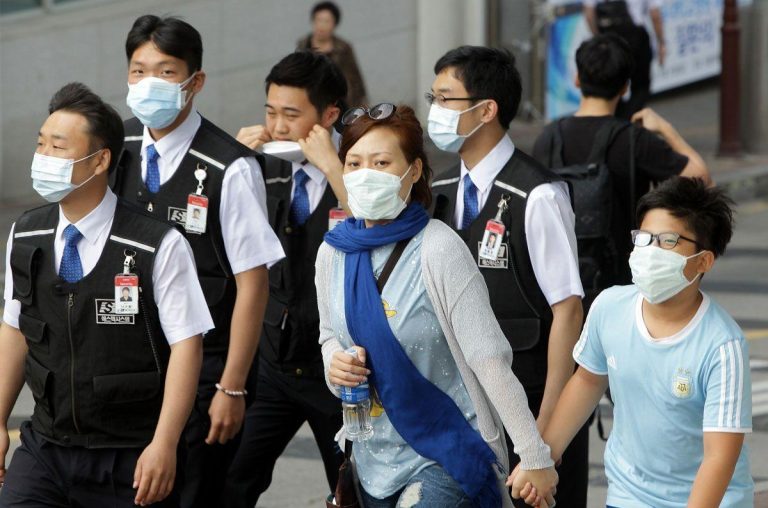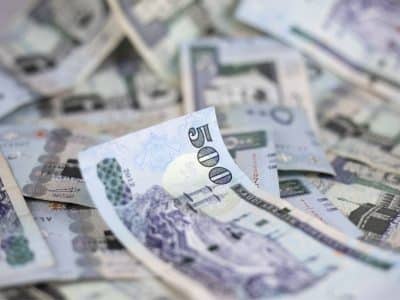South Korea’s Hyundai Motor, the world’s fifth-biggest automaker together with affiliate Kia Motors, has asked its employees to refrain from travelling to the Middle East over concerns about Middle East Respiratory Syndrome (MERS), a company spokesman told Reuters on Tuesday.
South Korea on Tuesday reported the first two deaths from an outbreak of MERS that has affected 25 people in two weeks and causing public alarm to grow and officials to scramble to contain the outbreak.
MERS is believed to have started in Saudi Arabia, where the first case was diagnosed in September, 2012. The kingdom’s health ministry reported a renewed rise in cases last month, with 12 infections recorded between May 10-16.
Globally, at least 1161 people have been diagnosed with MERS, with more than 430 people dying, according to the World Health Organization (WHO).
South Korea has isolated more than 700 people for possible MERS infection, which is caused by a coronavirus from the same family as the one that triggered the deadly 2003 outbreak of Severe Acute Respiratory Syndrome (SARS). MERS has a much higher death rate than SARS and there is no cure or vaccine.
WHO said no mutation had been detected in the virus in South Korea, and it did not appear to be spreading easily.
A 57-year-old woman, who had contact with South Korea’s first patient, died of acute respiratory failure on Monday, the Health Ministry said. She died at a hospital in Gyeonggi, the country’s most populous province which surrounds the capital Seoul.
A 71-year-old man who had been on respiratory support with a history of kidney ailments also died. Officials did not disclose his location.
South Korea’s health ministry reported seven new cases on Tuesday, including the woman who died, bringing the total number of cases to 25. South Korea now has the third highest number of cases after Saudi Arabia and the UAE, according to the European Centre for Disease Prevention and Control.
Officials have come under criticism from many in South Korea for not naming the hospitals where people have been treated, which has fueled widespread speculation.
“We’re finding it difficult to obtain suitable and sufficient information from South Korean authorities, for example, finding out which medical institutions are involved,” said Ko Wing-man, Hong Kong’s Secretary for Food and Health.
China last week reported its first MERS case, that of a South Korean man who tested positive after breaking a voluntary house quarantine and traveling to Hong Kong and on to mainland China.
South Korean Deputy Prime Minister Choi Kyung-hwan said the government’s credibility was at stake after criticism against authorities for failing to contain the virus after the first patient’s symptoms were initially overlooked.
“We will bring together all our health-related capabilities now and work to dissolve anxiety and concerns quickly,” he said.
The death rate from MERS, first identified in humans in 2012, has been 38 percent, according to WHO figures, with older patients and those with existing respiratory and renal ailments at greater risk, according to a South Korean doctor. However, experts said that figure may overstate the fatality rate as patients with little or no symptoms might go undetected.
By comparison, the death rate from SARS was 9 to 12 percent, rising above 50 percent for patients over 65, according to the U.S. National Library of Medicine.
“What is important is that we do not have a change in pattern. We also have seen in the Middle East a few individuals who transmitted (the virus) further on,” WHO spokesman Christian Lindmeier told Reuters in Geneva.
The WHO has so far not recommended trade or travel restrictions for South Korea.
But South Korean border control authorities have put a ban on overseas travel for people isolated for possible infection, a health ministry official said.
South Korea’s Hyundai Motor said it had asked employees to avoid traveling to the Middle East, while Samsung Electronics said it was screening employees twice a day in South Korea for fever, and would refrain from large-scale events.
Fifty-eight schools and kindergartens in Gyeonggi province, home to the hospital where the first death occurred, were shut for the week, according to a provincial official.
“So far it’s been inside hospitals that infections occurred but as soon as it gets out, it’ll probably spread rapidly,” said Lee Yu-jeong, a 41-year-old mother of three children.
“As a parent, it is worrying … the mood among mothers is that even if you’re a little sick, you try to avoid hospitals.”
Some tour agencies have started seeing overseas groups cancelling trips to South Korea, with about 2,500 cancellations by Monday, according to the Korea Tourism Organization.
Shares in Hanatour Services Inc and Modetour Network Inc, South Korea’s two biggest travel agencies, closed down 8.87 percent and 8.51 percent, respectively.
(With Reuters)








